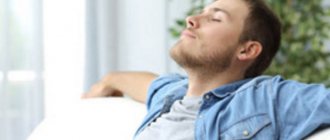The length of the daylight hours is decreasing - soon we will not only fall asleep, but also wake up in the dark. At the same time, most families and working people have to get up early so that children get to school and kindergarten on time, and adults get to work. All kinds of coaches also advocate for early rises - and never tire of giving reasons why waking up early is beneficial. Does your energy and productivity depend on what time you get up in the morning?
Best time to be quiet
The early morning hours are probably the only time during the entire day that you can set aside for yourself. This is the case for many people. The time between five o'clock in the morning and the time the rest of the family gets up is incredibly important.
This is your chance to enjoy precious moments and do things that can easily be neglected later due to various hassles. Whatever you choose - reading, meditation, prayer, yoga or any other quiet activity - enjoy it to the fullest.
For years I refused to meditate because I thought I was too fussy for it. But over the past few years, I've found that spending some time in silence helps me gather my thoughts, reduce stress, and maintain peace of mind.
Let's start by understanding the benefits of waking up early, here are 11 benefits:
You will have more time
There are only 24 hours in each day, the longer we sleep, the less time we have for active activities. When you get up earlier, you have extra hours that you can use. Each of us has many responsibilities and activities, we often say that we do not have time to complete them all.
Take the challenge for at least 30 days to get up an hour or two hours earlier. Use this extra time wisely and see what you can achieve in just one month. For many people, the morning hours are more productive. Stop wasting precious time on long sleep.
You will have peace and quiet
In the morning there are fewer stimuli that distract our attention. You can enjoy peace and quiet. When you start getting up early, you will realize that these are the “magic hours”. If you have children, you will understand this very well. There is a good chance that no one in your house will wake up very early. This means that this watch will be yours. You just realized that you get extra time into your day when you wake up early, and now you see that it's all yours... Are you ready to wake up earlier?
You will be happier
Research shows that early risers are more positive, optimistic people and experience more satisfaction in life. If you're not used to waking up early, you might not feel happier the first morning, but that will change over time.
One study conducted in Finland found that people who prefer evening hours to perform daily activities are prone to depression. Research shows that your overall risk of depression is lower if you wake up early.
You have more control over your day.
Have you ever felt like you are constantly in a hurry? Sometimes, in such a rush, you may get the impression that you are not in control of your life.
In the morning the alarm goes off, we reschedule our wake-up time several times, and then rush out of bed. We wash and dress in a hurry, sometimes without time for a good breakfast, we run out of the house.
When you start waking up earlier, you will find that you don't need to rush anywhere. You'll have time to have a peaceful, productive morning and plan your day. It's a calming feeling. Take control of your day before it takes control of you.
You'll be smarter
This is a somewhat controversial benefit of getting up early. According to one study at the University of Texas, it was shown that students who were "early birds" received higher grades than people who were "night owls" and preferred a nocturnal lifestyle. People who get up early usually go to bed early. Less partying and drinking less alcohol, which is known to have a negative effect on brain cells. Plus, by waking up early, you'll have more time to organize your entire day and be better prepared for it.
You'll be in better shape
You can use the extra time you get from getting up earlier to exercise. If you exercise in the morning, you will have more energy for the rest of the day. Plus, you may find it easier to complete your workouts. Sometimes after work we don't have the energy to exercise, or we're just so busy with other activities after lunch that we don't have enough time for physical activity.
However, if you exercise in the morning, you won't have to worry about it in the afternoon or evening, and you'll also have time for other activities. Through exercise, your energy and strength levels will be higher, which will help you cope with the challenges of everyday life.
According to one test, if you want to lower your blood pressure and also want to get a good night's sleep, then 7 a.m. is the best time to exercise. Of course, not only is the morning a convenient time to exercise, but the morning turns out to be the most effective time for physical activity and your workouts.
You will be more disciplined
Waking up early is a good habit and a great way to start the day well. Getting out of bed early isn't easy, especially in the beginning, but once you get used to it, you'll see how much you can get out of it, you'll be eager to jump out of bed in the morning.
Waking up early requires discipline. Starting your day early will make you more disciplined. Because discipline creates discipline, you become more disciplined and this can also help you in other areas of your life and achieve success.
You will be more productive
When you get up in the morning, you have time to do something constructive. You can start your day with activities that bring you closer to achieving your goals, so you can achieve more and become more productive. There are fewer worries and distractions in the morning, allowing you to focus, which helps you work efficiently. After a good night's sleep we are reborn, this also applies to our brain, which is ready for hard work in the morning.
We think faster and more efficiently. Experiments and studies also show that people who wake up early are also better at making decisions, planning and achieving their goals.
You have a chance to see the sunrise
There is nothing more peaceful and relaxing than watching the sunrise during your morning walk. A beautiful sunrise will make you smile, and smiling is good for your health. Watching the sunrise is a great gift for anyone who decides to get up early enough.
You will eat better
If you are a breakfast lover, you know how annoying it is to rush out of the house without breakfast or grab a quick snack on the way to work or college.
When you choose to wake up early, your food choices can also be healthier. Sometimes in a hurry, when we are hungry, we choose foods that are not necessarily healthy, with a lot of sugar and high in calories, just to quickly satisfy our hunger. When you get up earlier, you have time to prepare a healthy breakfast.
The extra hours in the morning give you time to eat a valuable and good breakfast. Whether you prefer a multi-course gourmet meal or just a cup of coffee, you can relax and enjoy the moment.
You increase your chance of success
Most entrepreneurs and successful people are early birds. Waking up early seems to be a common trend among the most successful people. Join the elite club of “early birds” who are successful throughout their lives.
Successful people use their mornings to do things they usually can't do later in the day. While some of us are constantly sleeping in our beds or hitting the snooze button on our alarms, these people are already walking the walk and taking action to improve their health, careers and lives.
The morning gives you extra time to work on your goal or a moment to plan your day, and maybe even plan your life. If you want to be more productive, wake up earlier. Adding an hour or two to your day can improve your life in a variety of ways.
How can you be more successful by using this morning time effectively?
How to get up early?
You already know “why” you need to get up early and are ready to do it, but how to start implementing this habit? Getting up early and doing morning activities can be difficult, especially for those who don't have the habit, but you can get used to getting up in the morning.
Better and more sound sleep
When you start constantly waking up at the same time, you will have no choice but to go to bed at the same time to get the amount of sleep you need. One of the additional effects of this transition is that sleep is likely to improve.
Various factors affect the quality of your sleep, but consistency is one of the most important. When I started waking up early, going to bed early automatically became a priority, and as a result, I was forced to make finishing work earlier a priority as well. If you set even one clear time limit for yourself, it can have a resonant effect on all your other decisions.
How to learn to wake up early? 10 simple tips
If you are a night owl and usually fall asleep late at night, then it is better not to force your body, but simply rearrange your daily routine, making it more productive. Waking up early isn't for everyone, and that's okay. You should not attack your internal clock to your own detriment. But if you are still determined to change your life, then we have some tips that will help you adjust your regimen without harm to the body.
Rule one.
Don't try to rebuild your body in a night or two. Those who have already gone through this advise: take the period between when you usually wake up (relatively 10 am) and the “early” time you need (let it be 4:30). Calculate the difference in minutes and divide by ten (330 minutes/10=33 minutes). And when you set the alarm, each time subtract this number from the time you get up. In our case, on the first day the call will be at 10:00, the next at 9:27, and then at 8:54, and so on until you reach 4:30. The change in biorhythms should be gradual - this is the most important thing.
Rule two.
Sleep as much as you need to feel well-rested. And go to bed eight hours before waking up - let your body calmly prepare for sleep.
Rule three
. Take a hot shower before bed. This will help you relax.
Rule four.
Think about what prevents you from going to bed and waking up earlier, and try to eliminate these obstacles. The main thing is to resolve all matters before the time at which you plan to go to bed.
Photo: istockphoto.com
Rule five.
Monitor your physical condition. This will help you both fall asleep and wake up normally. Eat right, exercise and be as stress-free as possible. And remember that the last meal should ideally take place three hours before bedtime, and it is better to move physical activity to the morning or afternoon.
Rule six.
Ventilate the room before going to bed. It is easiest to fall asleep at a temperature of 17-18 degrees, but to wake up at 22 degrees.
Rule seven.
Don't drink anything containing caffeine eight hours before bed. It’s difficult, we understand, but this will make it easier to adjust the biorhythms.
Rule eight.
No more “10 more minutes”: get up as soon as the alarm clock rings. Firstly, during this short time you will not get enough sleep, and secondly, you may fall asleep again for a long time. And in the end, you will still wake up tired.
Rule nine.
It is very important that the room is light when you wake up, because light affects biorhythms.
Rule ten.
If you can’t sleep, get up and do something. Return to bed when you are ready.
What will happen to your body if you eat at night every day?
What are the benefits of a cold shower? 7 reasons why you should dare to undergo procedures
More energy and optimism
I know a lot of people who don't look great in the morning.
My hair is unkempt, there's weird mucus stuck to my eyelashes, my breath smells terrible—it's clear that I'm not one of those people who was born with the ability to jump out of bed with a big smile on my face. I used to wake up like this every day, but now it rarely happens. When my alarm clock rings, I literally jump out of bed and enthusiastically begin my morning routine. And it wasn't genetically programmed. I wasn't born this way. It's all about habits, systems and personal choice.
I don't understand why feel tired when you can be cheerful? Why lie on the couch when you can run in the fresh air? Why deliberately hold yourself back when you know that renewable energy will be the fuel to move forward?
Smart alarm clocks - a guarantee of easy awakening?
There are special devices that help you wake up at the best time. These are so-called smart alarm clocks. Based on a person’s movements at night and sometimes based on some other indicators (sounds made, pulse rate), they determine the phases of sleep and “understand” when it is best to wake up the sleeping person. In recent years, there have even been phone apps that perform similar functions. Activate this application, place your smartphone near your bed and sleep!
Unfortunately, both alarm clocks and apps very roughly determine what time you need to get up . All of these programs have an error of up to 25%, which does not make their use a guarantee of “correct” awakening. Anything can affect the quality of the results: a random awakening in the middle of the night, or a visit from your dog, who decides to sleep at the owner’s feet and makes a lot of noise, getting comfortable.
Higher concentration
If you wake up at dawn and are the only person awake in the house, you have a great opportunity. One of the main advantages of getting up early is the guaranteed absence of noise and interference. Nothing stands between you and your goal. There are no distractions unless you create them yourself.
Many people start their day with TV. They wake up and immediately turn on the morning talk show, the news, cartoons, or a rerun of the evening comedy program they missed.
If your goal is to focus and move towards your goals, such distractions need to be put aside. The phenomenal benefit of focus is that it is always available unless you decide to give it up. To concentrate, you have to let go of everything except the one thing that matters most.
Alternative ideas about the daily routine
Research by historian Roger Ekirch, which lasted more than 15 years, reveals an amazing fact. In Europe, at a time when electric lighting had not yet been invented, our ancestors slept completely differently than we do now.
The night's sleep was divided into two parts: the first dream and the second. People fell asleep at about 21 o'clock, then slept for 3-4 hours. After which there was a period of night wakefulness. A few hours later they went to bed again and got up with the sunrise.
The historian studied various historical documents and evidence, thanks to which he came to such an amazing conclusion. Ekirch published his thoughts and evidence in the book “At the End of the Day. History of the Night", released in 2006.
The night hours could be devoted to reflection, prayer, creative pursuits or lovemaking.
Nowadays, an experiment was carried out. 15 volunteers were invited to spend 4 weeks without artificial light. For the first three weeks, they slept - they were active for about 10 hours during daylight hours, and during dark times they slept or dozed in a dark room. The participants' previous lack of sleep had an effect.
When they got enough sleep, the volunteers miraculously began to switch to biphasic sleep. First, sleep lasting 4-5 hours, then a period of wakefulness, and then sleep again until the morning. A total of no more than 8 hours.
They described their free night hours as very quiet. They talked about crystal clear consciousness, something similar to meditation. This condition could not be called insomnia. On the contrary, participants experienced a surge of energy.
Thus, if a very early rise beckons you with a desire to feel the magic of that very time when night gives way to morning, but you are not ready to become an extreme early riser, then take note of the described option of biphasic sleep.
Some of our contemporaries also sleep intermittently, considering it harmful and unable to get rid of the habit. However, don't rush to conclusions. Perhaps this is more natural than continuous 7 or 8 hour sleep.
The brain works better
Years of trial and error have confirmed that I think most clearly in the first half of the day, not in the second. This is true for everyone. Willpower is a finite resource that is renewed during sleep. During the day, discipline resources and the desire to work are gradually reduced. As a result, even simple tasks require serious effort.
If you want to take advantage of the natural cycles your brain already has, try to do your best work early in the morning. It doesn't have to be right after you wake up—just don't wait until happy hour starts at the bars to start writing your next novel.
Why go to bed early?
Few people know that our health, beauty, and youth are controlled by our hormones. We should all strive for hormonal balance; this is the most important factor affecting our lives. And one of the most interesting hormones is melatonin. It is produced from approximately 10 pm to 2 am, but only during sleep. It is responsible for mood, cell renewal, neutralizes free radicals, activates the immune system, renews the protection of blood vessels and brain cells, fills with strength and energy.
For example, it is known that women aged 40-60 years experience hormonal changes, which are accompanied by mood swings and often depression.
It has been established that artificial administration of melatonin in the amount in which it should be produced in the body cures them of depression. The women's mood significantly improved, and the daily synthesis of a number of other hormones normalized.
A person who does not go to bed until 2-3 am, and then sleeps until noon, is cutting off both his health and years of life.
Melatonin protects us from premature aging, supports the immune system, and protects against many diseases, including cancer.
The Vedas, beloved by many, say the following on this matter:
If a person does not sleep from 23:00 to 1:00 am, then the activity of prana (life force) circulating in the body will suffer.
Therefore, it is very important to go to bed at 22 o’clock, at the latest – at 23. Even better – at 21, but few people have this opportunity.
Healthier and more attractive body
Most often, I devote my morning to either an important project or health. If I'm not reading, writing, or finishing an urgent project at 5 a.m., I'm drinking a green smoothie, going for a run, or hanging upside down in gravity boots.
Morning hours are the ideal time to take care of yourself. Most people only budget a few minutes for a quick trip to the gym, or don't have time at all. But of all the things you can do at five in the morning, eating a healthy breakfast and exercising come first.
Waking up early won't be a magic solution that will automatically make you lose weight, but the trend is clear: early risers tend to exercise. And those who do them usually eat more healthily. Those who eat right tend to lose excess weight, which means they gain more confidence and feel more attractive.
The benefits of waking up early
Let's find out what benefits early rises bring.
- Your productivity increases significantly. If you've tried working early in the morning, you already know this secret. A task that usually takes two to three hours can be done in an hour in the morning. This seems fantastic. But you just need to start practicing waking up early in the morning to see for yourself.
- You will have extra time for yourself. Imagine how great it will be if in the morning you can devote time only to your favorite things. Perhaps you will finally realize your dream of being creative, read books that have been put aside for later, or start your own project. In any case, morning inspiration will help you.
- To get up early, you need to establish the right daily routine. If you start going to bed no later than 10 pm, you will get better sleep. And your morning well-being will delight you: a feeling of vigor and clarity of thoughts for the whole day.
These are the three main advantages of getting up early. But, of course, this is not all the joys that await you along this path. I also recommend reading the article about the unique properties of singing bowls.
More likely to achieve your main goals
Being productive means getting things done, but with the Early Morning Miracle, your goal isn't just to get more done. When you start waking up earlier, new opportunities will open up for you. You will have free time that did not exist before, and you will have choices. The trick is to decide in advance how you will spend it. Those who benefit most from the miracle of the early morning are those who wake up with a solid plan for how to succeed in achieving their main goals.
Even one hour a day, five days a week, can be enough to make progress in some things that are valuable to you and your mission.
Improved health
As mentioned above, in the period from 22:00 to 24:00 the body receives that same magical sleep that allows it to completely rest and renew itself. If you are used to going to bed after midnight, you may not get proper rest, even if you sleep 10 hours instead of the standard 7-8. The number of hours may fluctuate depending on physiological characteristics, but you still missed the right time.
A sudden switch to getting up early will not do you any good if you are used to waking up no earlier than 10 am. Therefore, it is better to take your time and try to get up 10–15 minutes earlier every morning. Gradually you will enter a new rhythm.
You will join an exclusive club of highly productive people
What do Howard Schultz (CEO of Starbucks), Richard Branson (founder of Virgin Group), Anna Wintour (editor-in-chief of Vogue) and Tim Cook (CEO of Apple) have in common besides amazing business success? All these powerful people get up early in the morning. Richard Branson and Anna Wintour wake up at 5.45, and Howard Schultz and Tim Cook at 4.30.
Let's not forget about such outstanding people as Benjamin Franklin, Thomas Jefferson, Margaret Thatcher, Barack Obama and George W. Bush. There is a clear connection between determination and success, waking up early and achieving great results, having a plan in the morning and the ability to change the world.
Dividing people by chronotype
It is at night that interest in so many things awakens! We go to bed long after midnight, but at the same time we experience an unpleasant feeling, because we managed to do very little. And we promise ourselves to get up early. And in the morning they are ready to send away both work and all their interests, if only they would let us sleep for another hour or two, and the whole day passes in a state of half-asleep. If you recognize yourself in this description, then you are one of the so-called owls.
All my life I considered myself a night owl: closer to ten in the evening I seemed to get a second wind, a creative impulse appeared, I could happily play the guitar or do something else interesting. Of course, in the morning I didn’t have anything close to this mood. Naturally, I concluded that I was an owlet and there was nothing I could do about it, and I calmed down. If I had just once tried to go to bed before midnight and get up early, I would have learned much earlier that I have many times more energy in the morning.
Having changed my usual (and rather boring) daily routine, I came to the conclusion that, if desired, any owl can become a morning bird. When I get up early, I manage to do as much in the morning as I previously couldn’t do in the whole day. And all this with pleasure. I also go to bed in high spirits: at the end of the day it is very important for me to take stock of what has been done, and a lot has been done.
Everyone knows the benefits of physical exercise. Starting your day earlier allows you to go for a run or do some abs.
Sleep cycles
There is also a known theory about sleep cycles, according to which a person wakes up “painlessly” only at the border of these cycles. It seems to me that the amount of time people usually lie in bed, waking up when there is no need to run anywhere, being in a state of half-asleep, illustrates perfectly that it is not a matter of cycles, but of self-discipline.
It is believed that on weekends we get enough sleep and feel better, because waking up does not happen by an alarm clock, but naturally (it turns out, just after the end of the cycle). But is this really so? How many times have you encountered a situation where you woke up at lunchtime on a weekend, were upset that the day was almost over, and didn’t get anything done? I think quite a lot.











